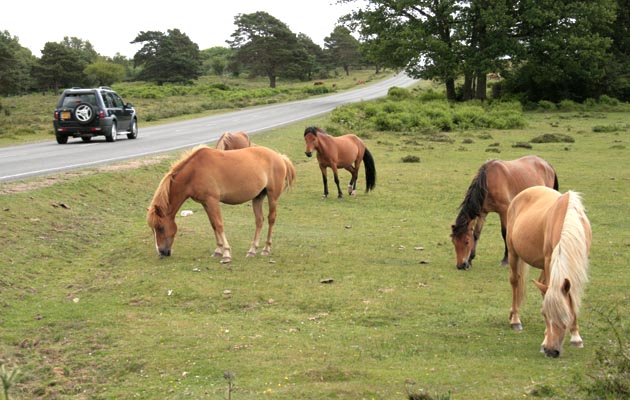Are weaning methods and fencing options potential causes of stress — and could that quiet horse be an unhappy one? Peter Green MRCVS reveals more in his latest research round-up
Weaning ways
Free-living ponies, such as those on Exmoor and Dartmoor and in the New Forest, have no close contact with humans and have never been in a building until they are rounded up and weaned at the autumn gatherings.
Is this more traumatic than the weaning of foals reared on stud farms, where herds or groups of mares and their offspring have run together but are used to people and barns and yards?
Twenty-six free-living Konik pony foals, gathered from the forests and conservation land of eastern Europe, were compared with 27 Konik foals reared in herds on farms where they were used to yards and loose housing.
Each group was taken from the mares and put into loose yards, then monitored. The weanlings were checked for signs of stress, such as social interaction with other foals, feeding, vocalisation and movement around the yards. Their levels of cortisol — the stress hormone — were measured by analysing metabolites in the dung.
When all the data was gathered, it was clear that weaning was more disturbing for the free-living ponies compared with their farm-reared counterparts. They were more withdrawn, and moved around and fed less than the foals used to yard conditions.
There was a range of cortisol levels in both groups, but more of the free-living foals had high cortisol.
It seems it is not only separation from the dam that causes stress at weaning but also, for free-living ponies, the introduction to a new environment.
Can horses be depressed?
One of the signs of depression in humans is ‘anhedonia’, the loss of pleasure people in a healthy mental state derive from things that are enjoyable. Another sign is the tendency to become withdrawn and negative towards normal social activity.
Depression in animals is notoriously hard to investigate, but in horses the taste of sugar (sucrose) appears to be universally pleasurable.
Scientists have recently pondered whether some quiet riding horses may actually be depressed. They looked at 20 horses from the same stables and assessed which appeared more engaged with their environment and which seemed withdrawn and uninterested in what was going on.
They offered all the horses sugar blocks in the stables and monitored consumption for the next 30 hours, during which time they recorded the way the horses spent their time. To ensure they were not just recording different appetites, adjustments were made to the results based upon the usual hay consumption of each horse.
The results revealed a direct correlation between sugar consumption and apparent levels of withdrawal. The more withdrawn horses were less interested in the sugar, which was interpreted as highly suggestive of anhedonia.
This interpretation was reinforced by the fact that the withdrawn horses had a significantly higher level of stereotypic behaviours, such as box walking, crib biting and weaving, which are recognised indicators of stress. Perhaps withdrawn horses are not just subdued and quiet, but depressed?
Ref: Horse & Hound; 28 May 2015
